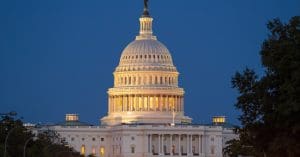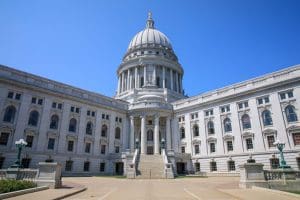The economic crisis caused by the coronavirus pandemic poses a triple challenge for tax policy in the United States. Lawmakers are tasked with crafting a policy response that will accelerate the economic recovery, reduce the mounting deficit, and protect the most vulnerable.
To assist lawmakers in navigating the challenge, and to help the American public understand the tax changes being proposed, the Tax Foundation’s Center for Federal Tax Policy modeled how 70 potential changes to the tax code would affect the U.S. economy, distribution of the tax burden, and federal revenue.
In tax policy there is an ever-present trade-off among how much revenue a tax will raise, who bears the burden of a tax, and what impact a tax will have on economic growth. Armed with the information in our new book, Options for Reforming America’s Tax Code 2.0, policymakers can debate the relative merits and trade-offs of each option to improve the tax code in a post-pandemic world.

Three-Fourths of New 2016 Investment Was Excluded from Improved Cost Recovery
New data sheds light on what share of new business investment was eligible for bonus depreciation as it existed before 2017 tax reform, and what share of new investment was excluded from improved cost recovery. This matters because the income tax is biased against investment in capital assets to the extent that it makes the investor wait years or decades to claim the cost of machines, equipment, or factories on their tax returns.
3 min read
Senate Republicans Introduce the HEALS Act for Coronavirus Pandemic Relief
A resurgence in coronavirus cases and receding economic activity in many states threaten the nascent economic recovery. To address the ongoing crisis, the Senate Republican Phase 4 proposal builds on the CARES Act provisions while modifying others, including a scaled down federal UI benefit.
8 min read
Revenue Gains in Asian and Pacific Countries Likely Offset by COVID-19
Because of the COVID-19 pandemic and the associated economic crisis, countries in the Asia-Pacific region will see a differentiated impact on their capacity of mobilizing domestic revenue depending on the structure of their economy. According to the OECD report, those economies that rely mostly on natural resources, tourism, and trade taxes are especially vulnerable.
5 min read
New York and New Jersey Consider Financial Transaction Taxes
Seeking new sources of funding, New York and New Jersey—two states at the heart of global financial markets—are considering financial transaction taxes.
5 min read
Austria Is Mulling an Allowance for Corporate Equity
While not a short-term measure to alleviate the economic losses resulting from the current crisis, experience from other countries has shown that a tax allowance for corporate equity can be a sensible long-term policy that can strengthen Austria’s investment environment and improve financial stability.
6 min read
The History of Excess Profits Taxes Not as Effective or Harmless as Today’s Advocates Portray
Today’s advocates would do well to study the history of excess profits taxes before overselling these taxes as a solution to the COVID-19 crisis.
2 min read
The New EU Budget is Light on Details of Tax Proposals
The European Council recently agreed on a new multiannual budget and a recovery program, which sets EU budget levels for 2021-2027 totals €1 trillion (US $1.2 trillion). The lack of details on the various tax proposals and the eventual need for revenue sources to finance new EU debt mean there is a lot of work left for policymakers in Brussels to do.
4 min read

(Webinar) Figuring Out Phase Four: Next Steps on Federal and State Coronavirus Response
As U.S. businesses struggle to recover from the economic downturn, Congress and the White House continue to debate a phase four relief package, which could include anything from incentives for domestic travel and a payroll tax cut to more fundamental reforms like enacting permanent full cost recovery.
2 min read
Tax Options to Promote Short-Term Recovery and Long-Term Economic Growth in Wisconsin
From a revenue standpoint, Wisconsin was better off than many states going into this crisis, but the policy decisions—including tax policy decisions—state policymakers make in the months ahead will have far-reaching implications for how quickly jobs and wages are restored in Wisconsin.
7 min read